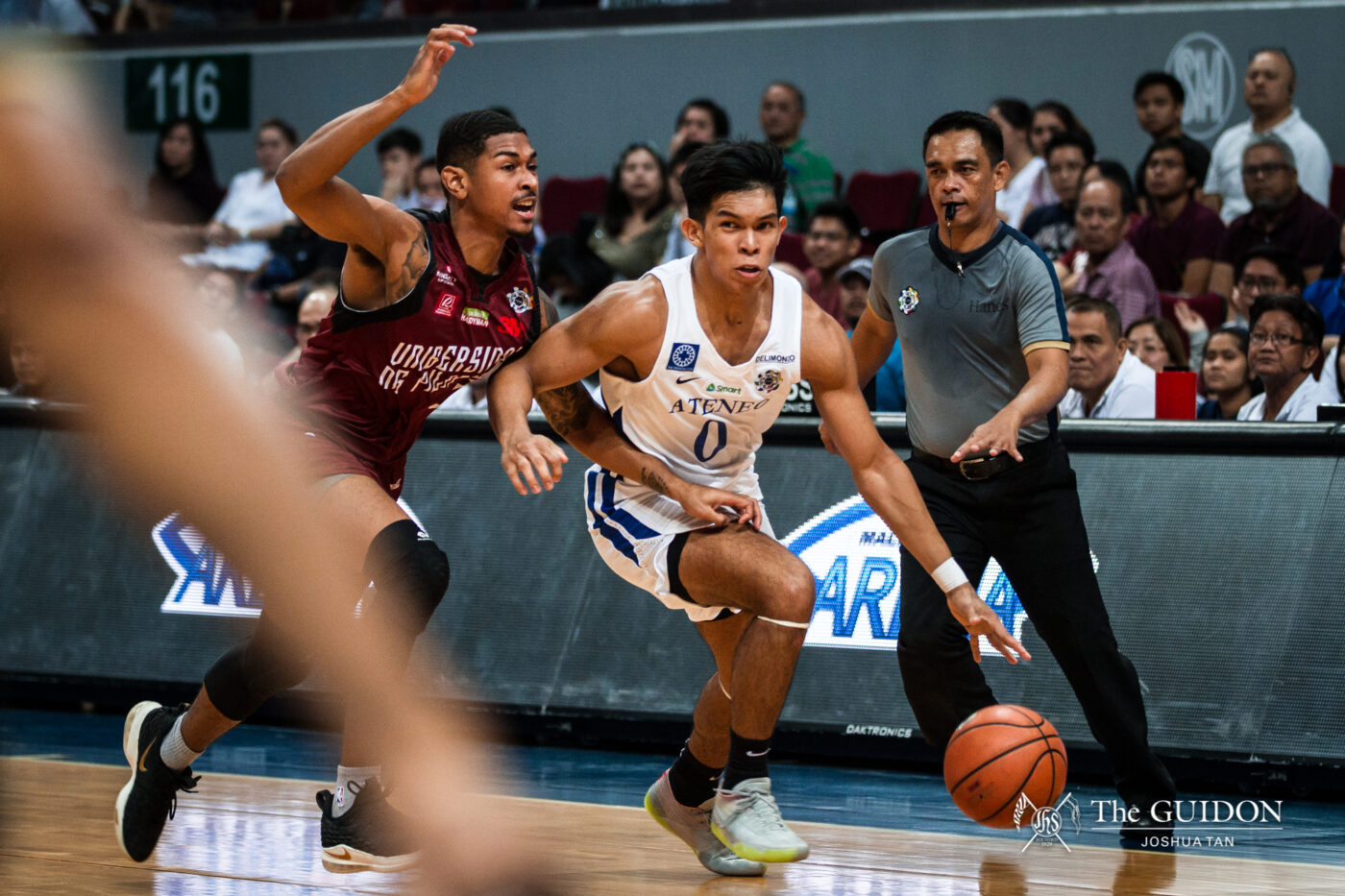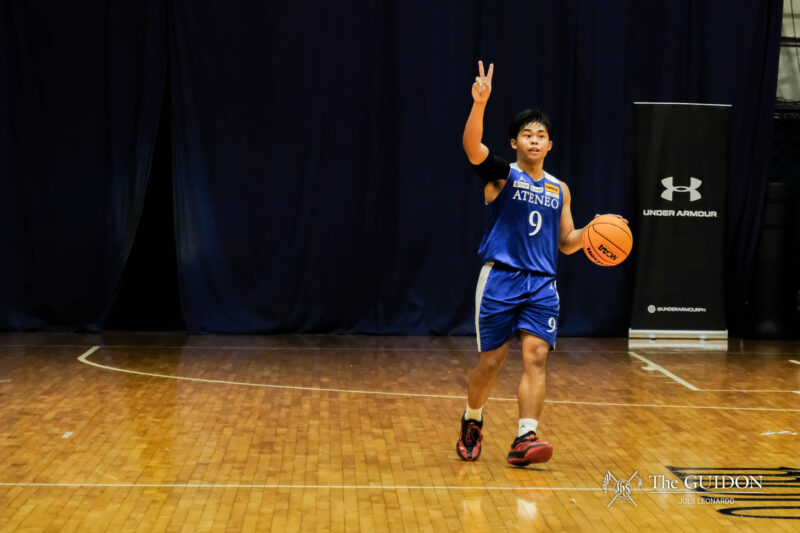BASKETBALL HAS always been and always will be an intense, physical, and gritty sport. Coaches, players, and fans alike can attest to how heated basketball games can get when everyone is riled up in the moment.
This University Athletic Association of the Philippines (UAAP) Season 81 Men’s Basketball Tournament, the issue of unsportsmanlike fouls has been a growing topic of conversation amongst the basketball community. Marquee players such as Far Eastern University (FEU) Tamaraw Arvin Tolentino and Ateneo’s Thirdy Ravena have committed such infractions and have been slapped with suspensions. On top of crucial missed minutes on the floor, these players are also deemed ineligible to receive any awards this season.
Players and fans alike have long shared their thoughts on this contentious issue. This Season 81, for instance, National University’s Troy Rike publicly voiced his dismay about the unnecessary and harmful contact in the league. On the other hand, the University of the Philippines (UP) Fighting Maroon Kobe Paras expressed his disagreement with Ravena’s suspension after Ateneo’s second-round bout against UP where Ravena hit UP’s Desiderio in the abdomen. However, the question lingers, has there been an increase in unsportsmanlike fouls called or are we just talking about it more? And are these stricter sanctions necessary?
What are unsportsmanlike fouls?
UAAP Season 81 Basketball Commissioner Junel Baculi disagrees that there has been a rise in unsportsmanlike fouls called this season, “To tell the people that there is a rise in unsportsmanlike fouls is a misnomer,” he says. According to Baculi, it is the viewing public’s lack of knowledge on the different criteria of unsportsmanlike fouls that has led to the impression that there is a rise of unsportsmanlike fouls.
According to Commissioner Baculi, the UAAP Basketball Tournament follows the International Basketball Federation’ (FIBA) rules. Based on the FIBA rules, there are five criteria in determining an unsportsmanlike foul—four of which are applied to the UAAP. Unsportsmanlike fouls are called when there is (1) no legitimate attempt to play the ball within the spirit of sportsmanship and healthy competition, (2) excessive, hard contact caused by a player in an effort to play the ball or an opponent, (3) unnecessary contact caused by the defensive player in order to interrupt an offensive team in transition until the offensive player begins the act of shooting, (4) any contact by the last defensive player from behind or laterally until the offensive player is in the act of shooting during a fast break.
Given the intensity of the UAAP, Baculi believes the current style of play in the league is “not dirty” and that it is the enthusiasm of the players that leads them to play more physical. “That’s why I’m here to police the attitude of the players and make them play basketball the way basketball should be played,” he says.
Whether a team is leading or playing catch-up, there is no question that the style of play between two playing teams intensifies as each game progress. Baculi understands that players only want to contribute to their respective team and earn a victory. For the betterment of the league, however, he says that the league has to crack down on these unsportsmanlike fouls whether called in-game or not.
Consistency of calls
Blue Eagles Assistant Coach Sandy Arespacochaga attributes the increase of unsportsmanlike fouls not to a dramatic rise in the physicality of play or dirty sequences, but to more developed TV coverage that spots unwarranted second motions and increases the visibility of players. Moreover, the referees are given the benefit of reviewing their calls on the spot, which moves them to take precautionary measures to guarantee they made the correct call. “Most of the time, the referees call an unsportsmanlike foul just to be sure,” Arespacochaga said.
Despite acknowledging that human errors hinder objective and consistent officiating, Arespacochaga says he never found the officiating inconsistent because only one body of the UAAP implements the tournament’s rules and makes the final decisions on sanctions and demerits: the commissioner’s office.
On the issue of consistency and fairness of the decisions and sanctions imposed, Baculi expresses with confidence that the league remains objective in its approach to the game and ensures that game officials are always prepared and reminded of the rules and procedures beforehand. Baculi stresses that the commissioner’s office respects the judgement of referees and that the office can no longer overturn regular calls that have been made in-game. In the case of unsportsmanlike fouls, on the other hand, the office has the prerogative to upgrade or downgrade these calls based on the video evidence available to them.
Every unsportsmanlike foul called is rigorously reviewed, under the lens of official UAAP rules by the commissioner’s office and every consequent decision is backed up by video evidence, with teams and players given the option to appeal if the footage is not compelling.
Promoting sportsmanship
With the increase in unsportsmanlike fouls and the possibility of being suspended, it is fair to wonder how the players themselves have been affected and how have they responded. Arespacochaga offers a glimpse into what the team experienced with Ravena’s suspension, saying, “I think [Ravena] is very much aware of the consequences of his actions, and [its] impact [on] the community, even his fans as well. He’s well aware of that, and he was apologetic.”
As for how it affects the overall intensity of the game due to long interruptions of play, Arespacochaga believes that this is a non-issue. He asserts that the more frequent calling of unsportsmanlike fouls is not to deter the players from playing intense, physical basketball, but to protect the players by cutting down on dirty and unsafe plays.
While many people were focused on the punishment aspect of this issue, with players missing time and being ineligible for individual awards, the true purpose of these unsportsmanlike fouls was overlooked, which is to promulgate the spirit of sportsmanship to every player in the UAAP. The ultimate goal of the UAAP in crafting these rules is to get the players to, simply, play the right way.







